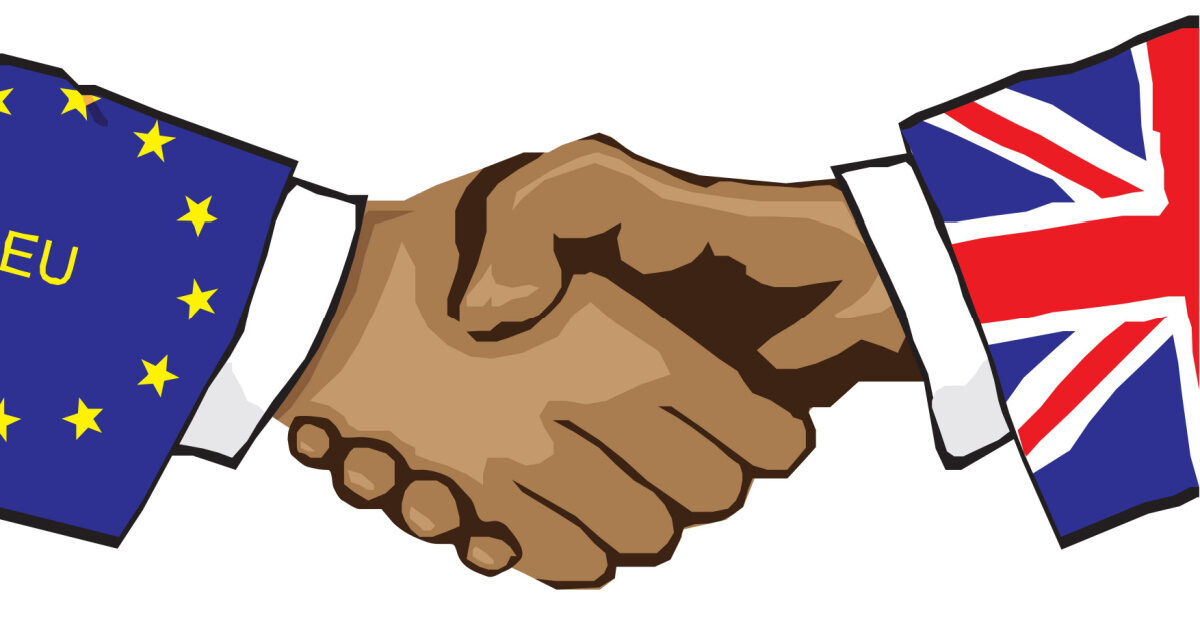Newsletter Signup - Under Article / In Page
"*" indicates required fields
The U.K. is rejoining the European Union’s (EU’s) $100 billion research program Horizon Europe, after being locked out of the deal amid post Brexit tensions for more than two years.
This comes after months of negotiations between the U.K. government and the EU, in an attempt to broaden opportunities for researchers in the U.K.. British scientists welcomed this decision which allows them to apply for grants via the scheme, as well as lead research projects from next year.
“The EU and U.K. are key strategic partners and allies, and today’s agreement proves that point. We will continue to be at the forefront of global science and research,” said Ursula von der Leyen, president of the EU.
Britain had been shut out of the program when a dispute over a segment of the Brexit deal, called the Northern Ireland protocol, arose, souring relations.
Brexit and severed ties
When the U.K. left the European bloc in early 2020, by default the U.K. was frozen out of the Horizon Europe program. But at the time, it was in talks with the EU to stay in the program.
But the events that led to the U.K. rejoining the research program being stalled indefinitely, occurred post-Brexit.
Initially, as part of the Brexit deal, it was agreed that Northern Ireland, the only region in the U.K. that shares a border with an EU member (Republic of Ireland), would have an open border. This was a means to uphold Northern Ireland’s peace process, which had set out to end violence due to political clashes in the region in the 1990s.
However, a bitter row ensued when Britain, under the leadership of pro-Brexit Prime Minister Boris Johnson of the center-right Conservative Party, who was in power at the time, decided to implement checks on goods entering the region from other parts of the U.K.. Northern Ireland’s unionist politicians claimed that this new trade deal undermined the region’s position in Britain. And, in retaliation, the EU blocked the U.K. from the Horizon Europe program, until Britain overturned its trading terms.
Thawing ties, Britain’s current Prime Minister Rishi Sunak, who belongs to the Conservative Party, struck a deal with von der Leyen earlier this year, which aims to allow goods to move freely from other parts of the U.K. to Northern Ireland, and only those commodities that are to travel onward to EU member countries like the Republic of Ireland will undergo customs checks. Sunak said that this new agreement titled the Windsor Framework, “removed any sense of a border in the Irish Sea.”
This move opened doors for the U.K. and the EU to revisit the former’s role in the Horizon Europe program. The two have been negotiating terms with regards to how much the U.K. will have to pay to become a member of the project once again, which was dragged out over the past few months.
Eventually, it was agreed upon that the U.K. will pay around 2.6 billion euros ($2.8 billion) a year to retain its Horizon membership until 2027, and that the nation will not have to pay for the period during which its participation in the project was paused. The deal also includes a clause proposing how much extra the U.K. government will pay or be refunded, if researchers were to over or underperform.
“With a wealth of expertise and experience to bring to the global stage, we have delivered a deal that enables UK scientists to confidently take part in the world’s largest research collaboration programme – Horizon Europe,” said Sunak. “We have worked with our EU partners to make sure that this is (the) right deal for the UK, unlocking unparalleled research opportunities, and also the right deal for British taxpayers.”
What does the Horizon Europe project mean for U.K. researchers?
Poised to become an associate of the programme from January 1, 2024, the U.K. will soon be able to apply for funding from the EU’s flagship research program. The Horizon project, which is the world’s largest multilateral research funding pot, will enable British researchers to win grants and bid to partake in research projects under the Horizon banner.
Through this scheme, the U.K. also looks to spearhead cancer research. A survey by Cancer Research UK found that 76% of the researchers who took part in the poll, thought that icy relations between the U.K. and the EU had led to difficulties in recruiting and retaining research staff. The survey suggested that sealing the Horizon deal would be in the best interests of cancer researchers and people affected by cancer.
“There will be relief throughout the research community that the uncertainty of the last two and a half years has come to an end,” said Michelle Mitchell, chief executive of Cancer Research UK. “We hope that this deal paves the way for the U.K.’s ongoing participation in future European research programmes. It is essential that the European Commission, the U.K. Government and U.K. research funders work with urgency to rebuild the strong position the U.K. occupied in the Horizon programme, and get funds and global collaboration flowing again into our research institutions.”
Along with Horizon Europe, the U.K. will rejoin Copernicus, the Earth Observation component of the EU’s space program. However, it will not back Europe’s nuclear-fusion project Euratom – which it was a part of prior to Brexit – as the nation plans to steer in a different direction, and pursue a “domestic fusion energy strategy.”
Partnering 2030: The Biotech Perspective 2023







